Saxelab Diversity Statement
Updated July 2021
- We recognize and affirm the diversity of our community
We are proud to be a diverse group of researchers: a mix of genders, nationalities, ethnicities, and ages, all working together on hard problems of the mind. Current and past lab members come from USA, Canada, Korea, Chile, Mexico, Italy, UAE, Israel, Iran, Poland, Germany, Ireland, Bulgaria, Turkey, the Ukraine, Bosnia, Malaysia and others; some are visiting this country, some are immigrants, some are children of immigrants; some speak English as a first language and many don’t; some are white, some are Black American, some are Asian American, some are Latinx, some are Native American, some are a complicated mix; some identify as cis and straight, some identify as LGBT+; some have been in foster care; some are blind, some are d/Deaf; one is a Marine. If you are passionate about science, you belong here.
2. We commit to take action to increase inclusion, equity, belonging, and justice.
We are committed to inclusion, equity, belonging, and justice and acknowledge it to be a lifelong process of learning. We will continue to learn by having conversations, being open to new perspectives, and being willing to be uncomfortable and make mistakes. We welcome feedback. We will discuss related topics at least once per semester in lab meetings. We have representatives in the BCS community of practice. We will continue to educate ourselves about racism, exclusion, privilege, and white supremacy in academia.
We commit to advertising positions in the lab to a diverse audience. All technical associate and post-doctoral positions are advertised on #BlackInNeuro and SPARK. We mentor students through the MIT summer research program and the BCS post-bac program.
We commit to reducing the unfair benefits of privilege for access to positions in the lab. We do not offer unpaid internships; all researchers in the lab will receive pay or credit. We do not offer internships to children of colleagues. We do not hold professional events at times that conflict with childcare responsibilities. We use holistic criteria for graduate student admissions; for example, we do not consider GREs or paper authorship.
We commit to considering the diversity of scientific voices we hear and to amplify traditionally underrepresented or excluded ones. We are transparent about the speakers we invite to our lab meetings. We plan to audit our papers and curricula and report the race and gender of authors we cite. We plan to read a paper by a non-white first author at least once a month.
We commit to engaging in outreach and teaching. We pay for the expenses of lab members who travel for outreach activities, like teaching at minority-serving high schools or HBCUs. We pay for registration, travel, and expenses for lab members to attend affinity group conferences (e.g. SACNAS, ABRCMS).
We commit to making participation in our research, and the results of our research, more equitably accessible. We avoid deficit framings of differences. We explicitly consider the ways participation in research can be a privilege or a burden. Our recruitment and consent forms are clearly written. At the same time, we respect the well-earned distrust of scientists by people in BIPOC communities. We post the results of our research on our website. We will make materials on our website accessible to blind and d/Deaf readers.
This list of commitments is not complete or exhaustive and is open to continual revision and reconsideration. We are a work in progress.
